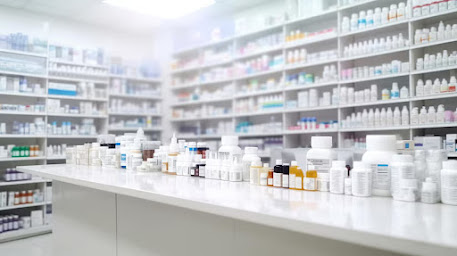What are the Benefits of Pediatric Compounding?
Pediatric compounding is a
specialized practice in pharmacy that involves creating customized medications
tailored to the unique needs of children. Unlike standard medications, which
come in fixed dosages and forms, compounded medications are made to suit
individual patient requirements. This personalized approach offers numerous
benefits, particularly for pediatric patients, who often face challenges with
standard medications. This article explores the various advantages of pediatric
compounding and why it plays a crucial role in pediatric healthcare.
Tailored Dosages
One of the primary benefits of
pediatric compounding is the ability to provide precise dosages suited to a
child's specific needs. Standard medications often come in adult dosages or
broad pediatric ranges that may not be suitable for every child. With Hilldrugs Pharmacy & Compounding can
create medications in exact dosages, ensuring that children receive the most
appropriate and effective amount of medication. This is particularly important
for infants and very young children, who require much smaller and more precise
doses.
Improved Taste and
Palatability
Many children struggle with
taking medication due to unpleasant tastes and textures. Pediatric compounding
allows pharmacists to alter the flavor and form of medications to make them
more palatable. By adding flavorings like cherry, bubblegum, or grape, and
altering textures to create liquids, gels, or dissolvable tablets, compounded
medications can become much easier for children to take. This significantly
improves adherence to medication regimens, ensuring that children receive the
full benefit of their treatments.
Customized Formulations
Children often have unique
medical needs that standard medications cannot meet. Pediatric compounding
allows for the creation of customized formulations that address specific
requirements. For example, a child with a severe allergy to a common ingredient
in standard medications can have a compounded medication free from that
allergen. Similarly, compounded medications can be made free of dyes,
preservatives, or other additives that may cause adverse reactions in sensitive
children.
Alternative Delivery Methods
Standard medications are often
available in limited forms, such as pills or capsules, which can be difficult
for children to swallow. Pediatric compounding provides alternative delivery
methods that are more suitable for children, such as oral suspensions,
lollipops, gummies, transdermal gels, and even suppositories. These alternative
forms can make it easier for children to take their medications without
resistance, reducing stress for both the child and their caregivers.
Addressing Medication
Shortages
Medication shortages can be a
significant problem, especially for pediatric patients who rely on specific
treatments. Compounding pharmacies can create necessary medications when
commercial products are unavailable, ensuring continuity of care. This
capability is particularly vital during times of supply chain disruptions or
when specific pediatric formulations are in short supply.
Personalized Medicine
Every child is unique, and
their medical treatments should reflect that individuality. Pediatric
compounding supports the concept of personalized medicine by allowing for
adjustments based on a child’s specific health conditions, weight, age, and
preferences. This personalized approach can lead to better health outcomes, as
the medications are specifically designed to work best for the individual
child.
Convenience and Compliance
By creating medications that
are easier for children to take, pediatric compounding enhances compliance.
Children are more likely to take medications that taste good and are easy to
consume, which means they are more likely to complete their prescribed course
of treatment. This compliance is crucial for the effectiveness of treatments
and for preventing complications that arise from missed doses or incomplete
treatments.
Support for Rare Conditions
Children with rare or complex
conditions often require medications that are not commercially available.
Pediatric compounding can provide these specialized medications, ensuring that
children with unique medical needs receive the necessary treatments. This
support is essential for managing chronic conditions, rare diseases, and other
complex medical issues that require tailored therapeutic approaches.
Enhancing Safety
Compounded medications can
enhance safety for pediatric patients. By avoiding unnecessary fillers,
allergens, and potentially harmful additives, compounded medications reduce the
risk of adverse reactions. Additionally, precise dosing minimizes the risk of
over- or under-dosing, which is particularly important for young children whose
bodies are still developing.
Collaborative Care
Pediatric compounding fosters a
collaborative approach to healthcare. Pharmacists work closely with
pediatricians and other healthcare providers to create the best possible
medication solutions for each child. This teamwork ensures that all aspects of
the child's health are considered, leading to more effective and comprehensive
care.
Conclusion
Pediatric compounding Newport Beach offers numerous benefits that address the unique needs of children. From tailored dosages and improved taste to customized formulations and alternative delivery methods, compounded medications can significantly enhance the treatment experience for pediatric patients. This personalized approach not only improves adherence and outcomes but also supports the overall well-being of children by ensuring they receive the most suitable and effective medications. As pediatric healthcare continues to evolve, the role of compounding pharmacies will remain crucial in providing high-quality, individualized care for young patients.




Comments
Post a Comment